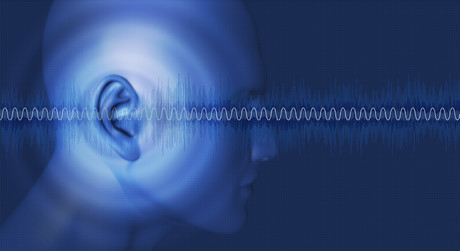How the brain handles noisy environments

Macquarie University researchers have revealed the way the brain handles the often noisy environments found on Earth, with the results explaining why animals, including humans, can easily cope with both the still and quiet of early-morning parks to the bustle of cafes and streets.
The study measured the neural response of guinea pigs — a species with a similar hearing range to our own — by exposing them to relatively quiet or loud unfolding soundscapes. The results, published in the journal Nature Communications, reveal that as auditory neurons become more familiar with a sound environment, they speed up their adaption to the noisiness of that environment.
“We discovered that neurons quickly adapt to the current sound environment being experienced — quiet or loud — and adjust to maximise the transmission of information about the current environment,” said study co-author Professor David McAlpine.
“However, what is really interesting is how these neurons adjust: their adaptation process itself adapts as sound environments become increasingly familiar. For example, after experiencing a sound environment five or six times, neurons are able to adapt twice as fast as when they first experienced it, in a process we’ve called ‘meta-adaption’.”
The results suggest that an animal’s ability to adapt to environments with different noise profiles is a more complex process than previously thought, and could also explain why some people find it difficult to follow a conversation in a noisy environment.
“Many otherwise normal-hearing listeners struggle to follow a conversation in background noise, a phenomenon known as ‘hidden hearing loss’ — hidden because it is not evident in gold-standard hearing tests,” said Professor McAlpine. “The discovery that the brain learns and adapts to different sound environments suggests one avenue we could explore to tackle this common communication problem.”
The study also showed that parts of the guinea pigs’ brains held onto memories of the soundscapes for much longer than expected due to a feedback loop. Existing between the midbrain and the auditory cortex, the discovery of this loop indicated a previously unknown connection between these two brain regions.
“One of the unusual things we found was that the midbrain — a part of the brain that is thought to retain information for only a few hundreds of milliseconds — was actually retaining the information it learned about how an environment sounded over many minutes, which was what allowed the auditory neurons to meta-adapt,” said Professor McAlpine. “When we blocked this loop the neurons could no longer adapt, indicating a relatively unexplored loop function between these brain regions.”
Parkinson's alters emotion-related bodily sensations
People with Parkinson's disease were found to have significant differences in all bodily...
Softer tumours fuel spread of triple-negative breast cancer
A metabolic 'survival switch' controlled by the stiffness of triple-negative breast...
Maternal protein intake affects offspring's facial features
New study findings emphasise the importance of maintaining a well-balanced diet during pregnancy,...







